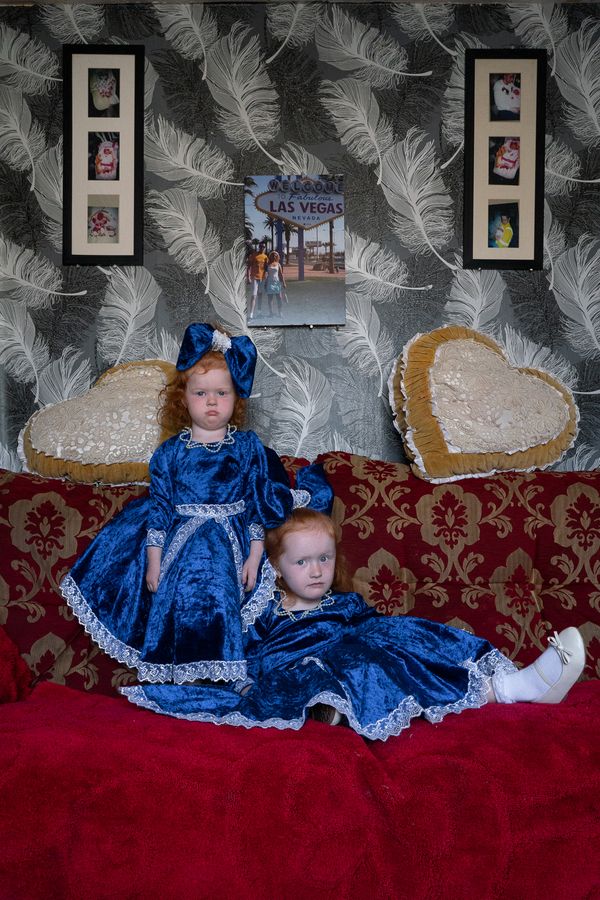About The Irish Travellers Series: 2016 to Present
-
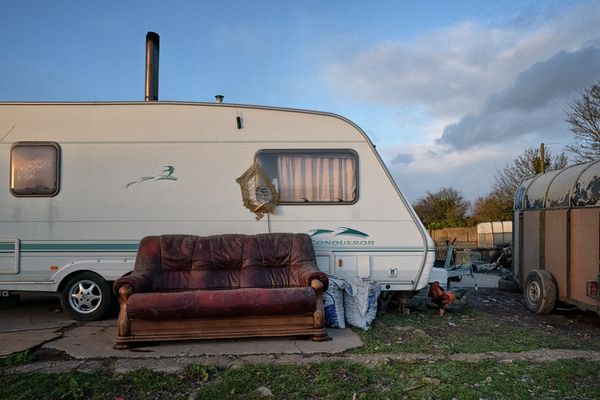
Jimmy's Caravan - Cashel Ireland
-
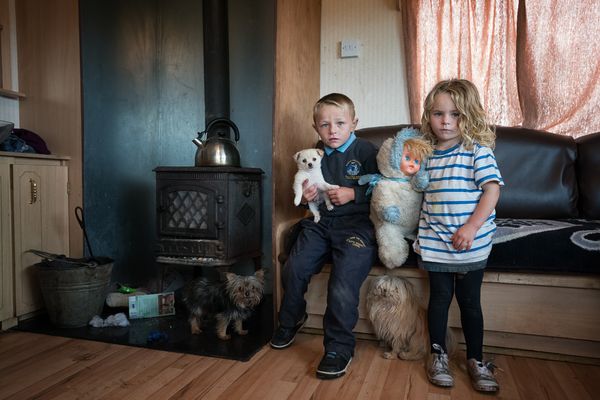
Pa and Nikita In Roadside Camp Caravan
-
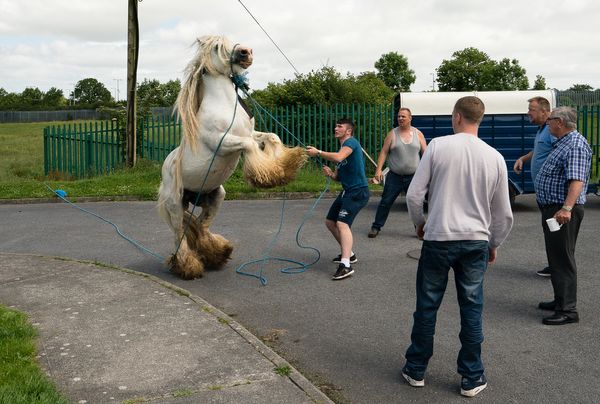
Rearing Horse - Craughwell Halting Site
-
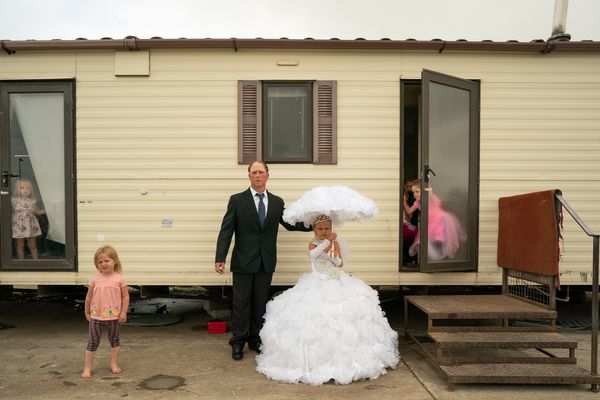
Judy's First Communion - Cashel Ireland
-
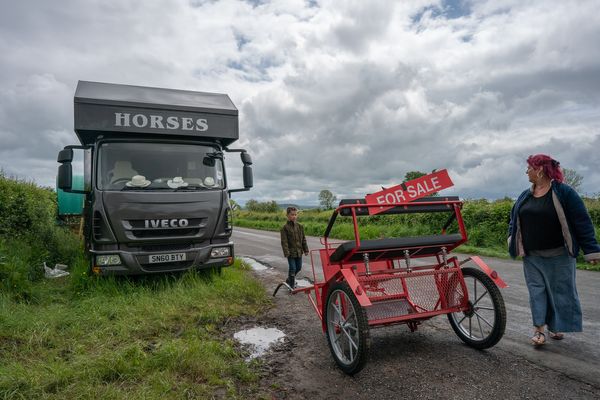
Horses For Sale - Irish Travellers
-
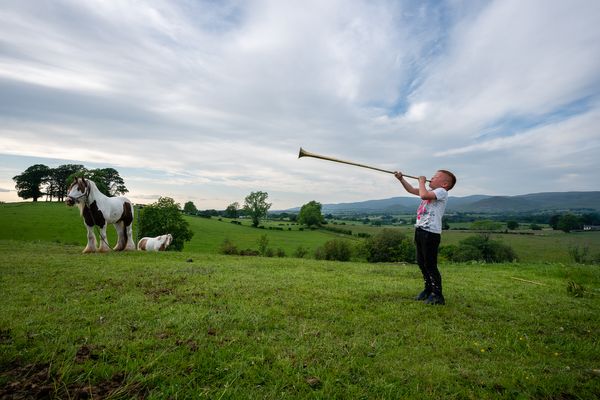
Irish Traveller Trumpeter Boy - Appleby UK
-
![Dooley Sisters - Killarney Ireland]()
Dooley Sisters - Killarney Ireland
The Irish Travellers (aka ‘Pavees’), are a historically nomadic culture that has lived on the margins of society for many hundreds of years. Today they number about 40,000 throughout Ireland and are ethnically separate from Romani and Gypsy ethnic groups.
Pavees were forced off the road by the “Trespassing Law” passed in 2002. Now, most Travellers live in extended family units in halting sites or small houses provided by local municipalities. Their homes are meager, and overcrowding is common. Often, they live on the periphery of town at the site of an old dump or toxic land fill, while others live in roadside camps or illegal encampments, sometimes without electricity or running water.
School is mandatory for the children, but nearly all drop out by the age of twelve to fourteen years. Few advance to college and many are illiterate.
Beginning when they are toddlers, girls are taught to act and dress older than their years. Most marry around sixteen to eighteen years of age. They are endogamous and traditional marriages are the norm. They are predominantly Irish Catholic. Families of four up to sixteen children are not uncommon. Women spend their time caring for the family.
Travellers want to be employed and involved in the general community while maintaining their traditions and distinctive culture. However, discrimination and racism make getting and keeping a job difficult, if not impossible. If known to be a Traveller, they will likely not be hired or will be fired when their origin is discovered. As a result, the unemployment rate is a staggering 84%. Often, the best way to get and hold a job is to hide their heritage. For men, working with horses and dogs helps them to fulfill their lives. Most Pavees live on a subsidy provided by the government.
Despite their meager means and daily challenges, the Irish Travellers are a proud, dignified and remarkably resilient group who highly prize their culture and family life. This series highlights the Traveller families and their way of life.
